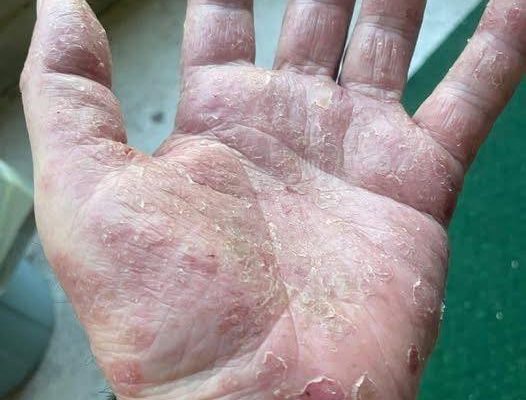Oral cancer, often referred to as mouth cancer, is one of those diseases that too often goes unnoticed until it has reached an advanced stage. Unlike other illnesses that may cause obvious discomfort early on, oral cancer can remain silent for months or even years, which is one reason it is so dangerous. Many people dismiss minor mouth sores, gum irritation, or unusual spots as harmless, never realizing they may be dealing with the early signs of something far more serious.
Dentists and oncologists emphasize that early detection is the single most important factor in successfully treating mouth cancer. A simple dental exam can identify unusual growths, lesions, or discolored patches that patients themselves might overlook. According to specialists, individuals should see their dentist at least twice a year not only for their teeth and gums but also for a thorough oral cancer screening.
Mouth cancer can develop in different areas: the lips, tongue, inner cheeks, gums, or the floor of the mouth. Each location may present slightly different symptoms, but the underlying risk is the same—it can spread quickly if not caught in time. Dr. Sajjan Rajpurohit, a leading expert in oncology, stresses that people who smoke tobacco, chew betel nut, or consume alcohol frequently are at a significantly higher risk. For these individuals, regular checkups are not optional—they are essential.
The symptoms of oral cancer can be subtle in its earliest stages. Small ulcers that do not heal, white or red patches that linger, or unexplained pain in the mouth can all be early warnings. A persistent sore throat, difficulty swallowing, or a feeling that something is stuck in the throat may also indicate the disease is developing. Unfortunately, many people ignore these symptoms until they become impossible to live with, by which time the cancer may have advanced to a more dangerous stage.
Beyond visible changes, oral cancer can also manifest in ways people might not connect to the mouth at all. Unexplained weight loss, chronic ear pain, or loose teeth with no gum disease present could point to something more serious. Because these symptoms overlap with many less severe conditions, patients often delay seeking professional advice, losing precious time.
The dangers of untreated mouth cancer cannot be overstated. If diagnosed late, treatment options become more invasive and less effective. In its advanced stages, oral cancer can spread to lymph nodes in the neck or to other parts of the body, drastically lowering survival rates. This is why routine dental visits, combined with awareness of warning signs, can literally be life-saving.
Mouth cancer typically progresses through several stages. In the initial stage, lesions or patches may be small and painless. At this point, surgery or localized treatments can be highly effective. As the cancer advances, the tumors grow larger, invading deeper tissues and possibly spreading to lymph nodes. Once it reaches this point, treatment may involve a combination of surgery, radiation, and chemotherapy, often with significant side effects. In the most advanced stage, when the cancer has spread beyond the oral cavity to distant organs, the prognosis becomes much more challenging, and treatment focuses as much on improving quality of life as it does on trying to eradicate the disease.
Preventing mouth cancer starts with lifestyle choices. Avoiding tobacco in all forms is the single most effective step anyone can take. Limiting alcohol consumption also dramatically reduces risk, as does maintaining a healthy diet rich in fruits and vegetables that support the immune system. Protecting lips from excessive sun exposure with balms containing SPF is another simple but often overlooked preventative measure.
However, even people with healthy habits are not completely immune. Genetics, viral infections like HPV, and other factors can contribute to the development of oral cancers. This is why regular screenings are universally recommended, regardless of lifestyle. A quick check during a dental appointment can reveal issues long before they become serious.
Living with oral cancer is never easy. Treatments can affect speech, eating, and appearance, impacting not just physical health but also emotional well-being. Patients often face anxiety, depression, and social withdrawal as they adjust to changes brought on by surgery or therapy. This makes support from family, friends, and healthcare providers essential. Mental health care is as important as physical treatment in helping patients regain confidence and continue with their lives.
The encouraging news is that when caught early, oral cancer is highly treatable. The survival rates for early-stage detection are significantly higher compared to cases discovered later. Public health campaigns and increasing awareness have already made a difference, but more education is needed to encourage people to take oral health seriously beyond just cavities and cleanings.
In the end, oral cancer serves as a stark reminder that our mouths are not just windows to our overall health—they can also be early warning systems for conditions that threaten our lives. Paying attention to small changes, refusing to ignore persistent symptoms, and making routine checkups a priority can make all the difference.
If you smoke, drink, or have other risk factors, don’t wait until pain forces you to see a doctor. Prevention and early detection are your strongest weapons against this silent but deadly disease. And if you have any doubts, consult a dentist or an oral cancer specialist immediately. A few minutes in the chair today could save your life tomorrow.



